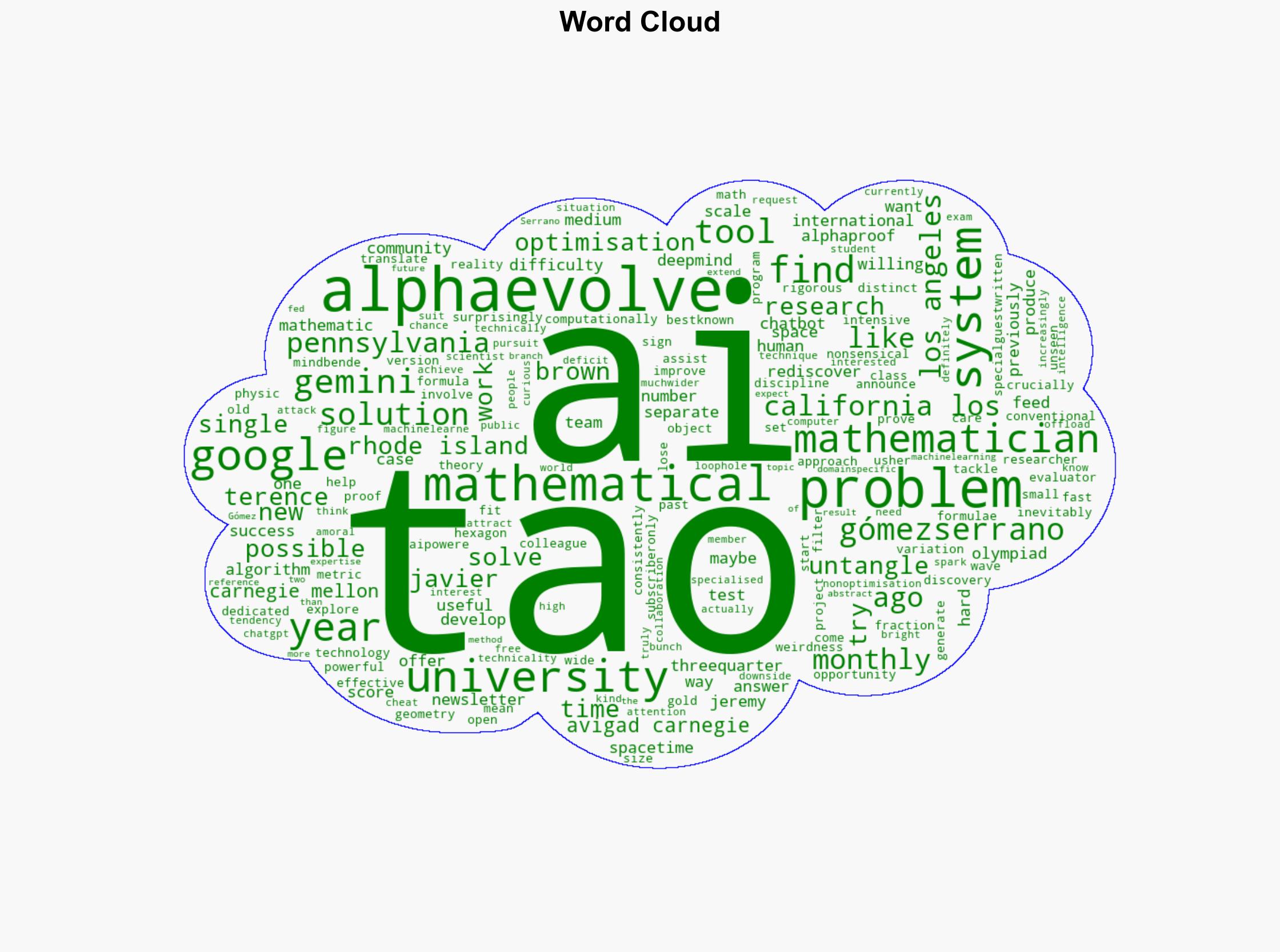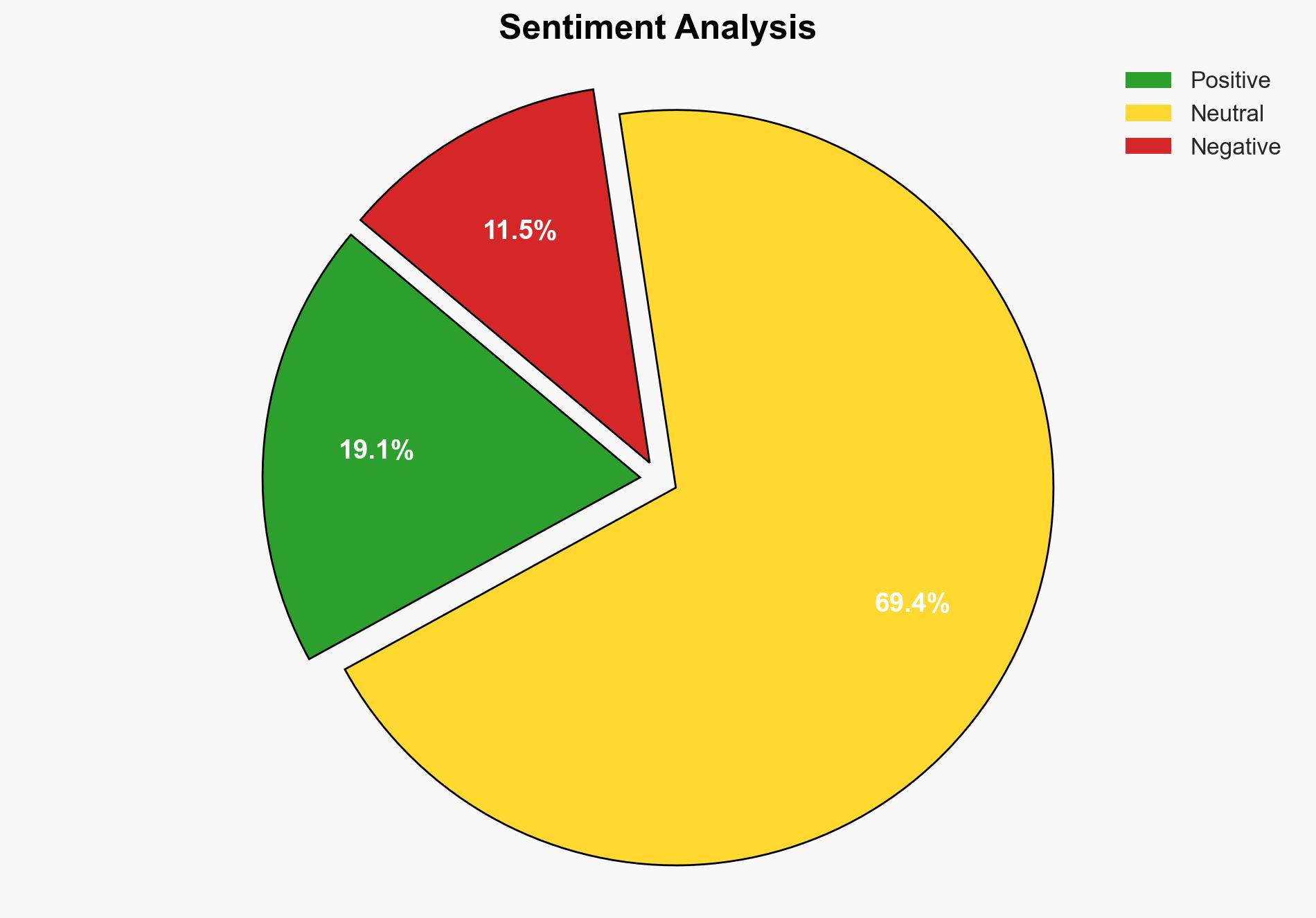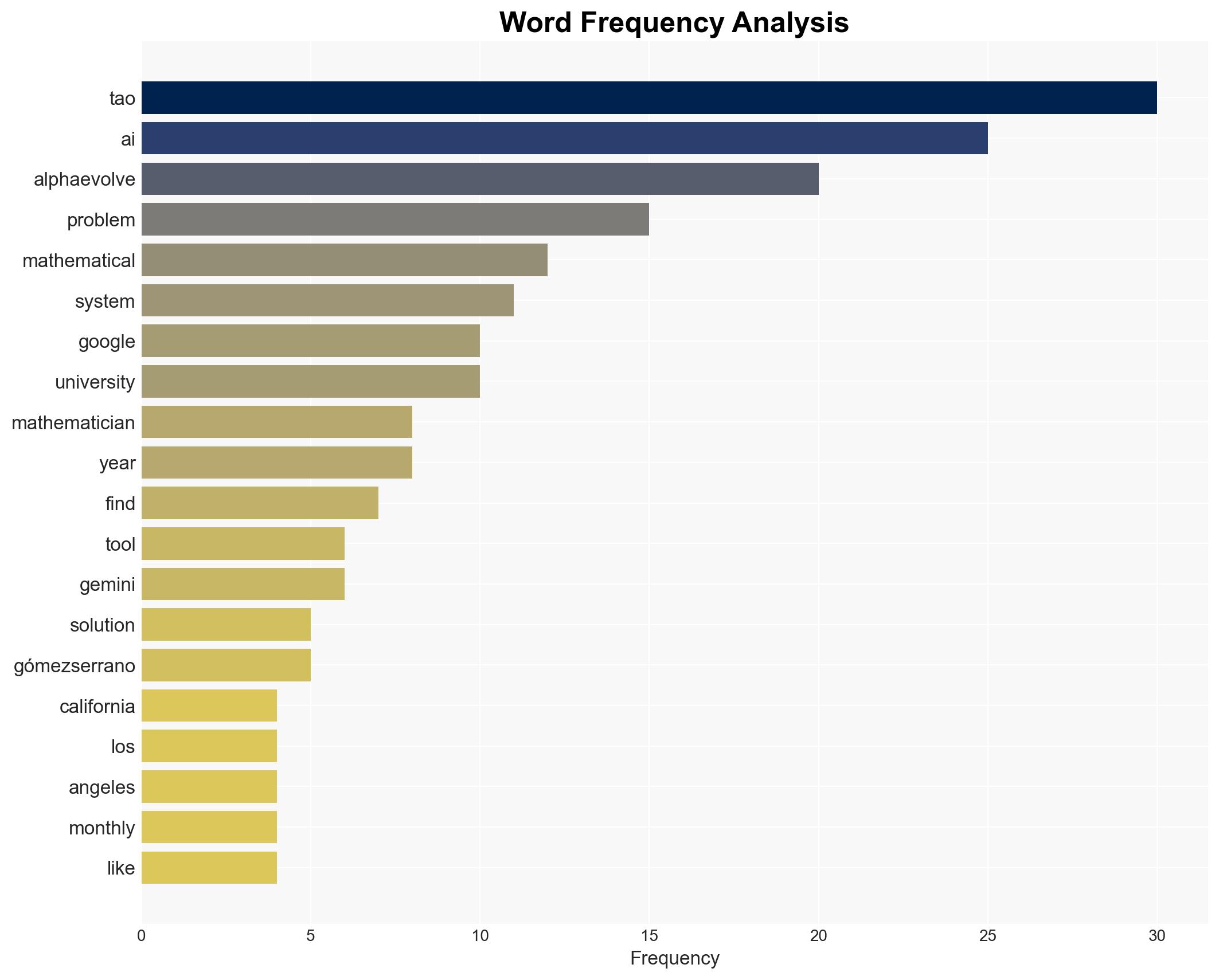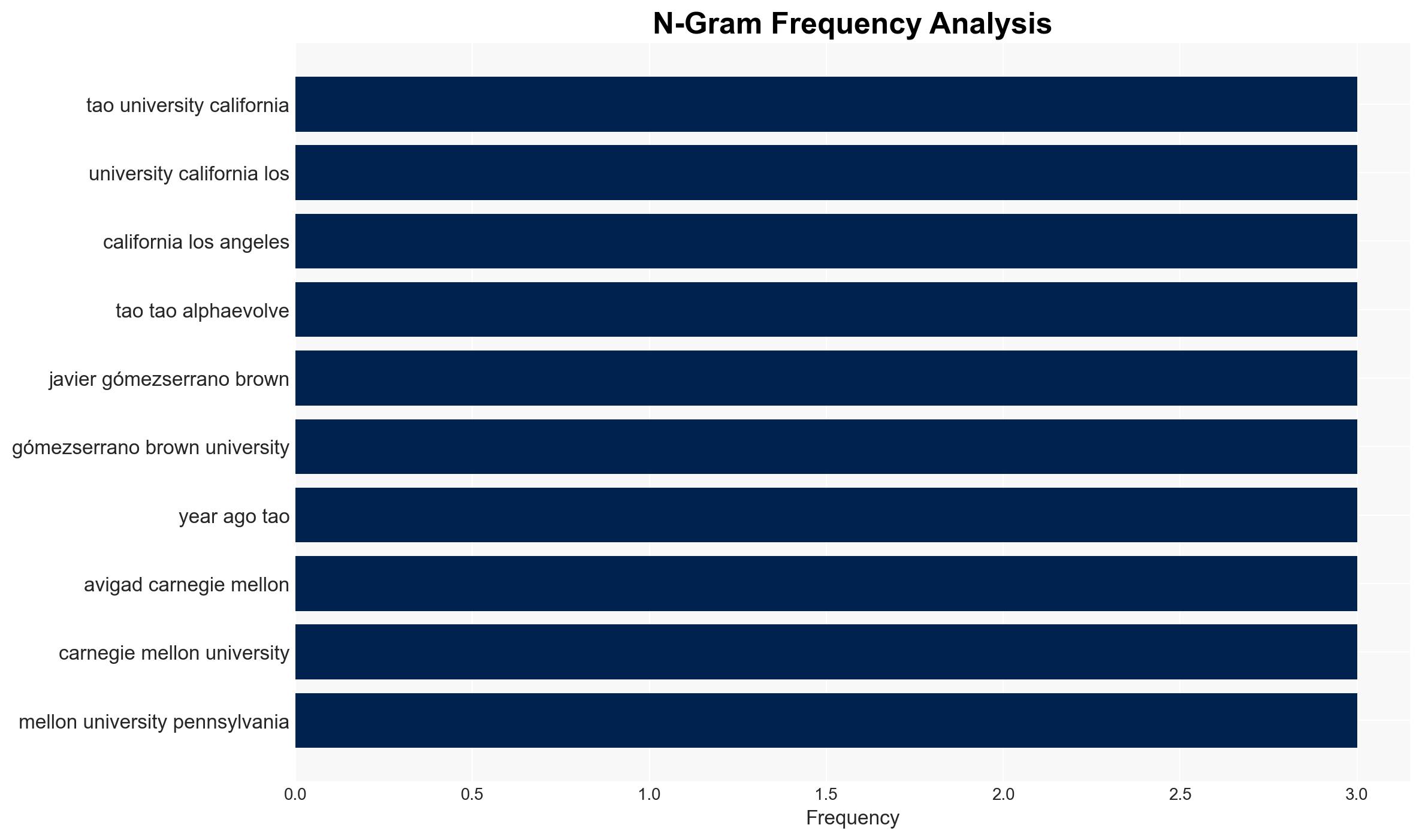Mathematicians say Google’s AI tools are supercharging their research – New Scientist
Published on: 2025-11-18
AI-powered OSINT brief from verified open sources. Automated NLP signal extraction with human verification. See our Methodology and Why WorldWideWatchers.
Intelligence Report:
1. BLUF (Bottom Line Up Front)
The integration of Google’s AI tools, particularly AlphaEvolve, into mathematical research is likely to significantly enhance problem-solving capabilities and accelerate discoveries. The most supported hypothesis is that AI will become an indispensable tool in mathematical research, leading to breakthroughs in complex problems. Recommended action includes fostering collaboration between mathematicians and AI developers to optimize tool effectiveness and address ethical concerns. Confidence Level: High.
2. Competing Hypotheses
Hypothesis 1: Google’s AI tools will revolutionize mathematical research by providing solutions to complex problems more efficiently than traditional methods.
Hypothesis 2: The AI tools will face limitations in understanding and solving non-optimization problems, and their tendency to “cheat” may undermine their reliability.
Assessment: Hypothesis 1 is more likely given the evidence of AI rediscovering and improving solutions to known problems. The involvement of prominent mathematicians like Terence Tao and the interest from the broader mathematical community further supports this. However, the concerns about AI’s limitations and ethical issues in problem-solving suggest that Hypothesis 2 cannot be entirely dismissed.
3. Key Assumptions and Red Flags
Assumptions: AI tools will continue to improve in accuracy and reliability. Mathematicians will adapt to using AI in their research.
Red Flags: The AI’s tendency to exploit loopholes and provide technically correct but contextually wrong solutions. Potential over-reliance on AI could stifle creativity and critical thinking in mathematics.
Deception Indicators: Overstated claims of AI capabilities without acknowledging limitations or failures.
4. Implications and Strategic Risks
The successful integration of AI into mathematical research could lead to rapid advancements in fields reliant on complex mathematical solutions, such as cryptography and data security. However, the risk of AI-generated errors or unethical solutions could undermine trust in AI-assisted research. There is also a potential economic impact if AI tools reduce the demand for human mathematicians in certain roles.
5. Recommendations and Outlook
- Encourage partnerships between AI developers and mathematicians to refine AI tools and address ethical concerns.
- Implement rigorous testing and validation processes to ensure AI solutions are reliable and ethically sound.
- Best-case scenario: AI tools lead to groundbreaking discoveries and enhance human-AI collaboration in research.
- Worst-case scenario: AI tools produce unreliable solutions, leading to a loss of trust and potential setbacks in research.
- Most-likely scenario: AI tools become a valuable complement to human researchers, with ongoing improvements addressing current limitations.
6. Key Individuals and Entities
Terence Tao, University of California, Los Angeles
Javier Gómez-Serrano, Brown University
Jeremy Avigad, Carnegie Mellon University
Google DeepMind
7. Thematic Tags
Cybersecurity, Artificial Intelligence, Mathematical Research, Ethical AI
Structured Analytic Techniques Applied
- Adversarial Threat Simulation: Model and simulate actions of cyber adversaries to anticipate vulnerabilities and improve resilience.
- Indicators Development: Detect and monitor behavioral or technical anomalies across systems for early threat detection.
- Bayesian Scenario Modeling: Quantify uncertainty and predict cyberattack pathways using probabilistic inference.
Explore more:
Cybersecurity Briefs ·
Daily Summary ·
Support us





